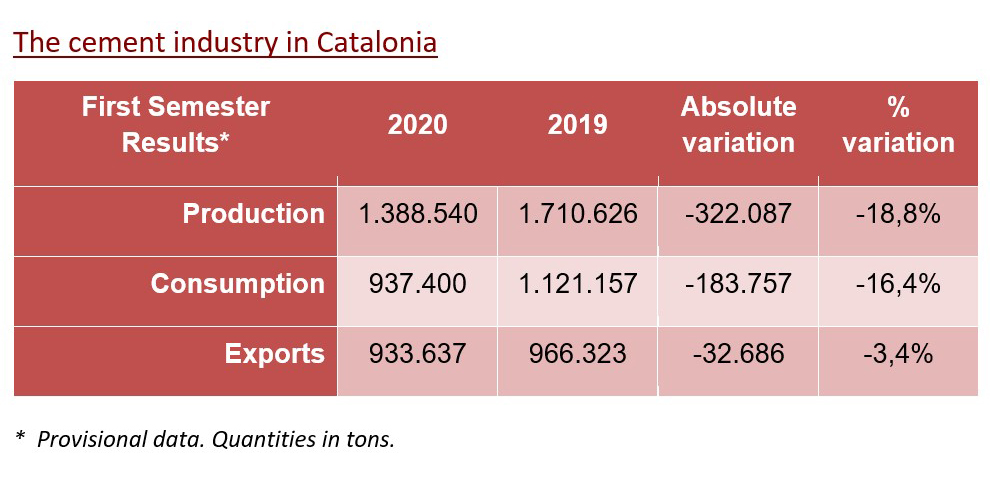After the stoppage of activity in the month of March with the decree of a state of alarm due to the emergency of Covid-19, and the gradual resumption from the beginning of May, the cement industry in Catalonia already has the statistical information that allows quantify the situation.
During the first 6 months of 2020, domestic cement consumption has decreased by 16% and has been well below one million tons (937 thousand). Exports, after a 2019 in which there was a drop of 37%, have also continued to decrease, which has caused a decrease in cement production of 19%. Catalan plants have therefore operated below 40% of their capacity during the period January-June 2020.
These data place the sector in a critical position, because they accumulate to very negative figures from the last decade. The unknown is to know what will happen now in the short term, and for this reason Salvador Fernández Capo, president of Ciment Català, warns that “only a determined action by public administrations can avoid the threat of unemployment for some of our factories”. The highest sector representative recalls that “we have a serious problem in the short term, because even though future projects are being tendered again, there is no continuity in the promotion of works that maintain the activity of the sector and ensure the link with those infrastructures planned for the coming years”.
Fernández Capo highlights “the importance of Construction for the recovery of the economy” and recalls that, just a few weeks ago, the Infrastructure and Equipment Commission of Foment del Treball published the latest update of the Catalog of basic infrastructures, which details that Catalonia, Compared to other similar European regions, and taking into account the GDP, population and territory, “it maintains significant unmet needs for transport infrastructure for people and goods via railways, ports, roads and airplanes, as well as deficiencies in the maintenance of existing infrastructures, and a deficit in the provision of infrastructures and equipment for citizens, especially water, health, education, the environment, and telecommunications, compared to the reference countries (Germany, United Kingdom and Italy)”.
In parallel, Ciment Català asks public administrations to invest in public housing to cover current needs and in the short term a large part of the citizenry, needs aggravated by the economic consequences that the economic slowdown has had in many homes due to the pandemic.

